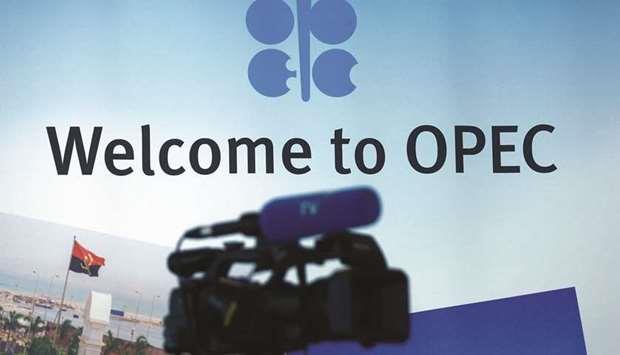
Opec resisting flow of history with reluctance to cut deeper
The chorus in the oil market calling for deeper production cuts gets louder almost every day. By resisting the clamour, Opec is breaking with its own history.
As crude sank below $50 a barrel less than half the price of two years ago market-watchers from Goldman Sachs Group to former Opec officials said supply curbs imposed this year need to be intensified. That would be consistent with past behaviour, when production cuts or increases often arrived in stages a few months apart.
This time is different. The emergence of US shale oil producers who can adjust supply more rapidly than Opec's previous rivals means the Organisation of Petroleum Exporting Countries cannot act with the same freedom it once did. As economic pressure mounts for exporting countries, using the old playbook runs the risk that new American supplies would fill in any extra cutbacks.
'When Opec was in control, it would often act in stages, said Chakib Khelil, a former Algerian energy minister who was Opec president in 2008. 'The market is different than in 2008. Today, non-Opec plays a larger role in supply. And the major issue is how long can they sustain this supply.
Oil has given up almost all its gains since Opec and Russia launched their initiative to clear a three-year surplus. Their supply cuts have failed to deplete the world's bloated fuel stockpiles quickly enough and West Texas Intermediate futures have declined about 16% this year. Previously, that would probably have prompted Opec to revise its plans and agree on additional reductions.
'In the past if it didn't work, Opec would adjust lower, said Mike Wittner, head of oil market research at Societe Generale in New York. 'It's a process. That's what supply management means.
The last time Opec intervened, when the global recession took hold in 2008, it initially agreed a supply cut in October and, when prices continued to plunge, supplemented this with another reduction in December, the biggest in the group's history.
Between 2004 and 2005, the organisation increased output targets six times to satisfy booming consumption in China. And three cuts were made in quick succession from 1998 to 1999 as oil demand tumbled in the wake of the Asian financial crisis. 'One-and-done has certainly not been sacrosanct policy, said Helima Croft, head of commodity strategy at RBC Capital Markets.
While the organisation didn't always take a sequential approach, 'when the situation required further action, it wasn't unusual for Opec to take it, said Adnan Shihab-Eldin, director-general of the Kuwait Foundation for the Advancement of Sciences and former Opec secretary-general.
With the world's fuel inventories still brimming, the organisation needs to revert to that old approach with a 'deeper cut, said Nordine Ait-Laoussine, president of Geneva-based consultants Nalcosa and former energy minister of Algeria.
Although the organisation and its partners known as the Vienna Group agreed last month to prolong the cuts until next April, they've shown no interest yet in amplifying them. Saudi Arabian Energy Minister Khalid al-Falih reiterated on June 19 that global markets are already on the path to re-balancing, while a committee of producers that met in Vienna the next day was said to have given additional cutbacks no serious consideration.
UAE Energy Minister Suhail Mazrouei said in Paris on Thursday that there are 'no plans or talks to enlarge the cuts.

Legal Disclaimer:
MENAFN provides the
information “as is” without warranty of any kind. We do not accept
any responsibility or liability for the accuracy, content, images,
videos, licenses, completeness, legality, or reliability of the information
contained in this article. If you have any complaints or copyright
issues related to this article, kindly contact the provider above.


















Comments
No comment